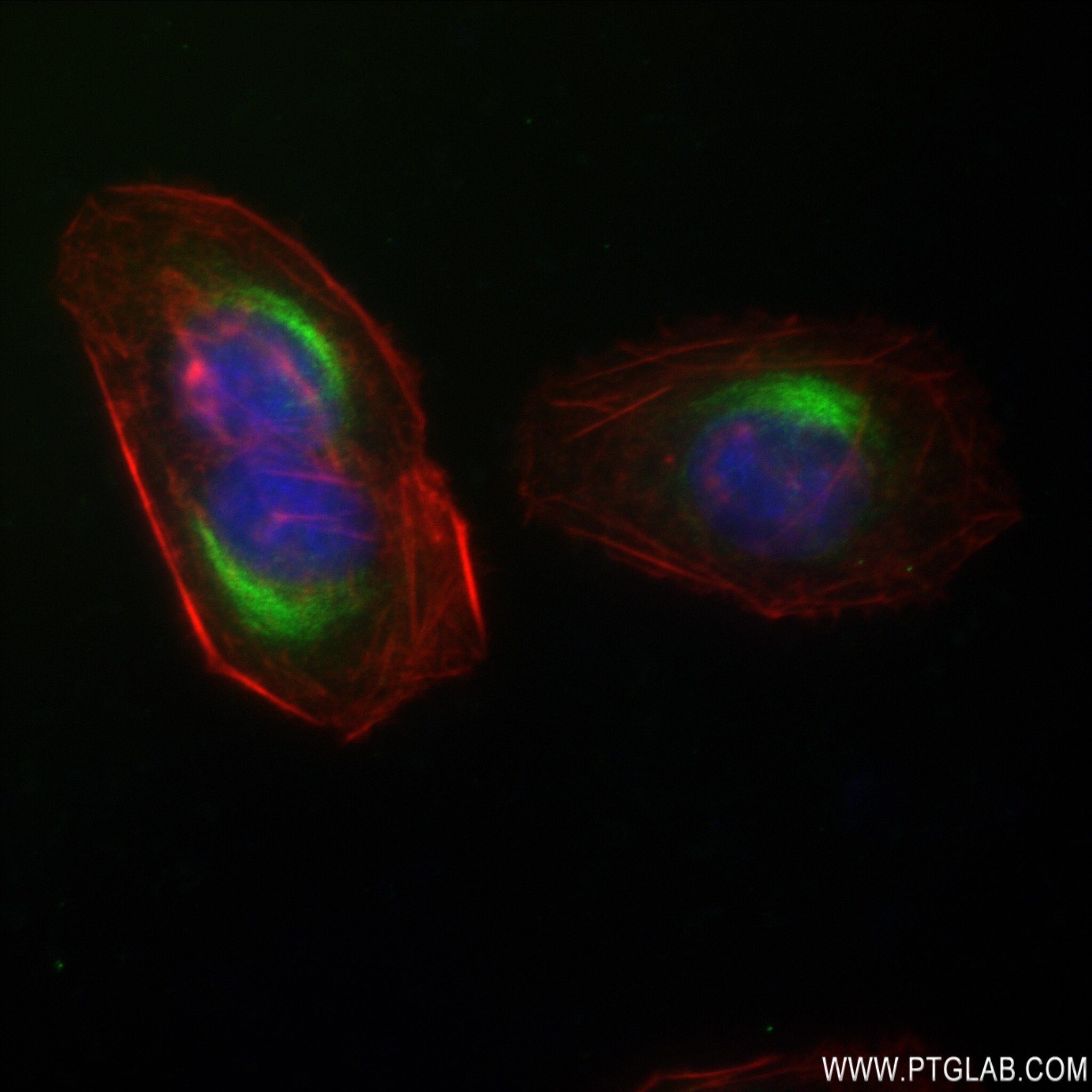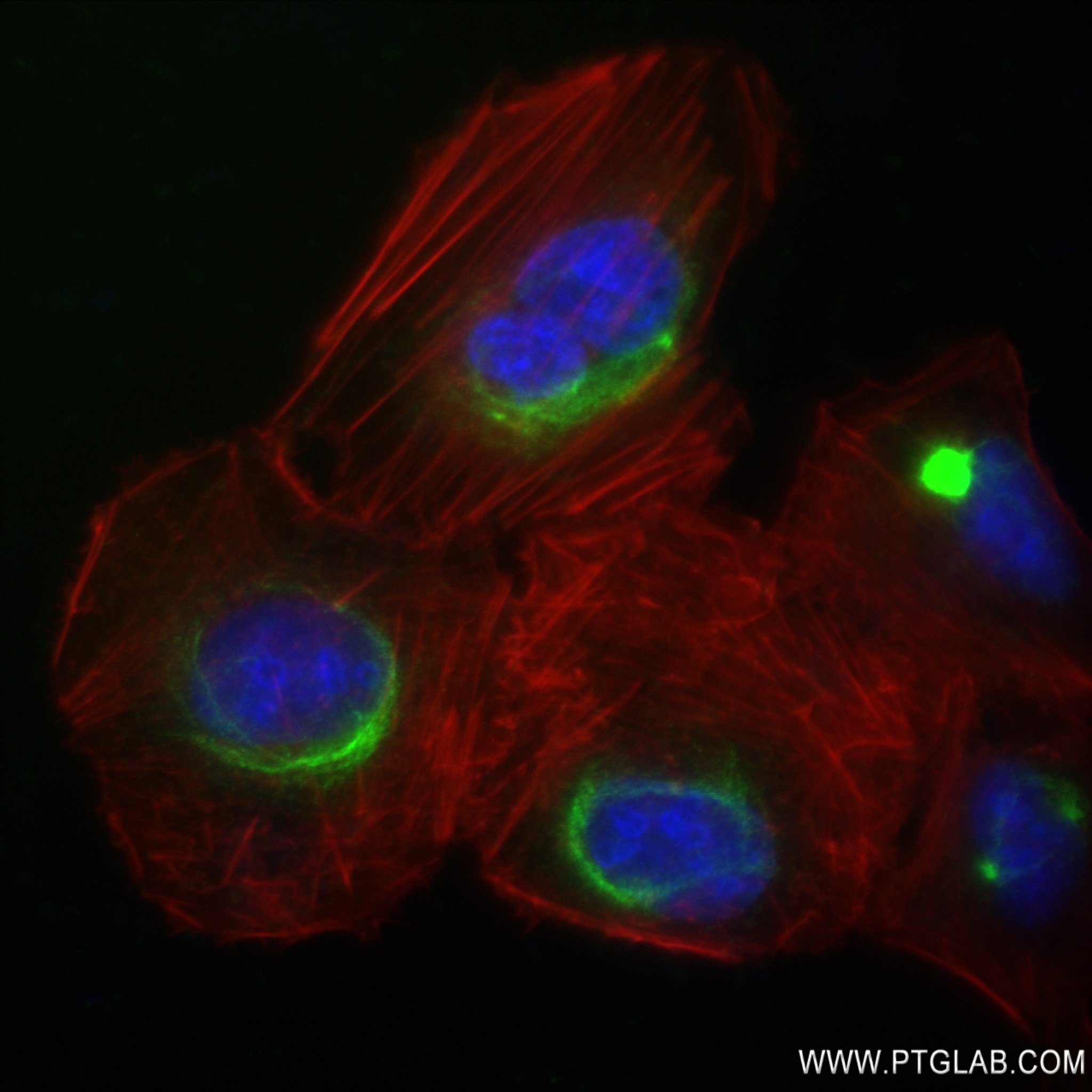Tested Applications
| Positive IF/ICC detected in | U2OS cells |
Recommended dilution
| Application | Dilution |
|---|---|
| Immunofluorescence (IF)/ICC | IF/ICC : 1:200-1:800 |
| It is recommended that this reagent should be titrated in each testing system to obtain optimal results. | |
| Sample-dependent, Check data in validation data gallery. | |
Product Information
82998-4-RR targets CCDC23 in IF/ICC, ELISA applications and shows reactivity with Human samples.
| Tested Reactivity | Human |
| Host / Isotype | Rabbit / IgG |
| Class | Recombinant |
| Type | Antibody |
| Immunogen | CCDC23 fusion protein Ag33650 Predict reactive species |
| Full Name | coiled-coil domain containing 23 |
| GenBank Accession Number | BC029427 |
| Gene Symbol | CCDC23 |
| Gene ID (NCBI) | 374969 |
| RRID | AB_3670745 |
| Conjugate | Unconjugated |
| Form | Liquid |
| Purification Method | Protein A purification |
| UNIPROT ID | Q8N300 |
| Storage Buffer | PBS with 0.02% sodium azide and 50% glycerol , pH 7.3 |
| Storage Conditions | Store at -20°C. Stable for one year after shipment. Aliquoting is unnecessary for -20oC storage. 20ul sizes contain 0.1% BSA. |
Background Information
CCDC23 also known as SVBP is a small vasohibin-binding protein of 66 amino acids, and functions as a chaperone of VASH1 in vascular endothelial cells(PMID: 20736312). SVBP enhances the tyrosine carboxypeptidase activity of VASH1 and VASH2, thereby promoting the removal of the C-terminal tyrosine residue of alpha-tubulin(PMID: 29146869, 31171830). Mutations in SVBP cause Neurodevelopmental disorders with ataxia, hypotonia, and microcephaly (NEDAHM)(PMID: 30607023, 31363758).
Protocols
| Product Specific Protocols | |
|---|---|
| IF protocol for CCDC23 antibody 82998-4-RR | Download protocol |
| Standard Protocols | |
|---|---|
| Click here to view our Standard Protocols |





